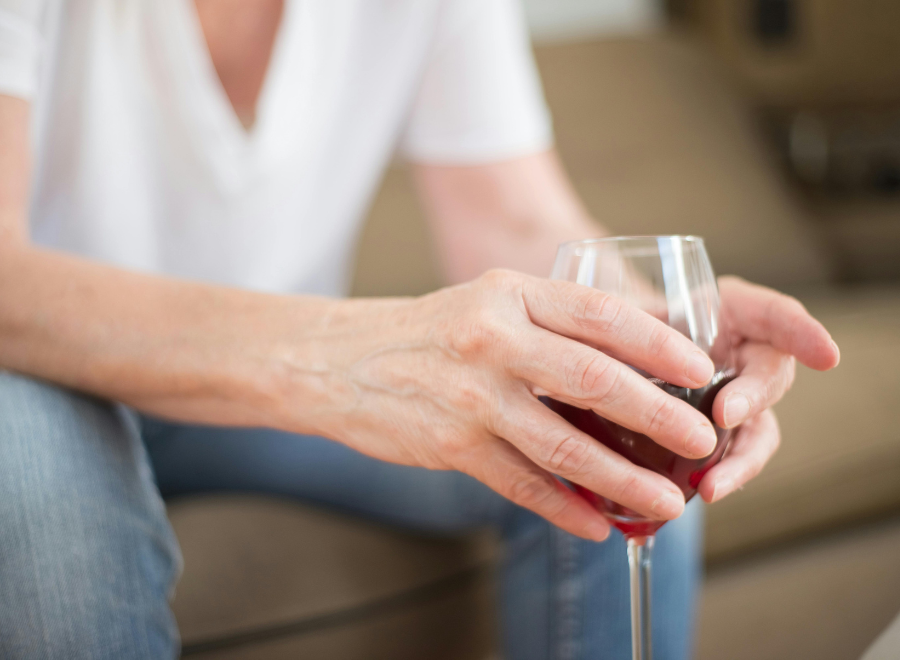If someone you love has decided to try to reduce their drinking, what can you do to support them on the path to a healthier relationship with alcohol? Plenty! It begins by changing our thinking about heavy drinking; thinking that is often flawed and based in outdated myths and beliefs about how best to manage an alcohol problem.
1. Be an ally. You have the power to help. An entire shelf of self-help books insists people are powerless to change their loved one’s drinking. Yet counter to conventional wisdom, partners and family of people who drink can influence their loved one’s behaviour in positive ways. Studies confirm “concerned significant others” can be a powerful force for change and reduced drinking in the lives of the people they care deeply about. Best-selling author and psychologist Adam Grant suggests saying something like, “I believe in you. I know you can do this” is often crucial. Doing something hard is so much easier if someone in our corner actively cheers for us.
You may unsubscribe from any of our newsletters at any time.
2. Don’t shame them if it’s too hard. Problematic drinkers tend to have experienced a lot of shame and humiliation by the time they decide to change, especially if they’ve developed an addiction. Circuits in their brain have been rewired, making it enormously difficult to quit, especially on willpower alone. Some of these drinkers go months without hearing a kind word. Evidence confirms shaming fuels more drinking, often in secret. In one major study, lower perceived stigma was associated with a higher chance of wanting to ask “someone close for help.” That’s you. And try this: five positive comments for every negative one seems to be the ideal ratio to help relationships flourish, whether it’s a marriage or a good corporate team.
More on Broadview:
-
A 12-step program only took me so far – faith helped me stay sober
-
Magic mushrooms are helping terminally ill patients go out on a high
- Online gambling is exploding in Canada. Where is the outcry?
3. Science has discovered the best ways to motivate people to change their behaviour. But when it comes to talking about alcohol dependence, most of us do the opposite. Dr. William Miller, possibly the most cited addiction researcher on the planet, explains why all the usual methods of trying to persuade a loved one to cut back or quit drinking entirely –to lecture, persuade, argue, order, demand – don’t work. “It’s just a natural human thing that when somebody takes one side of the argument, you’re likely to raise the other side, which means you wind up talking yourself out of change.” So as a partner, when you say things like, “You need to take responsibility, you have a problem, you need to change, this is serious,” you likely elicit the counterargument. Rather than talking them out of change, remind them of times in the past where they met difficult goals. Help them discover their own powerful motivation to drink less, not yours.
4. Consider helping them drink less, as opposed to drink never.Maybe the idea of a completely “Dry January” is too much of a challenge, especially if your loved one has been drinking a lot for a long time and may have a dependence. Research has shown that simple, practical, cheap tips and tools that fall under the umbrella of harm reduction will help heavy drinkers reduce consumption. That’s why Canada’s new Guidance on Alcohol and Health recommends doctors offer harm reduction as an option to their drinking patients. For a profession that has largely recommended only total abstinence for decades, this is a game changer. And here’s the secret: often a path that begins in moderation ends up in abstinence. The evidence again, comes from Dr. Miller. “For about a decade, we were studying methods to help people learn to drink moderately. We got a pretty good range of people coming in. There was a subset of people who moderated their drinking and stayed there. But what we found over the long run was, actually more people who came through the moderation program quit.”
***
Maureen Palmer is a former CBC journalist, filmmaker and author of You Don’t Have to Quit: 20 Science-Backed Strategies to Help Your Loved One Drink Less.














Alas…..the information in the article sounds impressive. However, I know a little something about the reality. I lived for eleven years with an alcoholic and I have relatives who are drinkers and alcoholics and I know the pain, the humiliation, the fights, the sense of hopelessness, the desire to do nasty things just to get this person out of one’s life. Psycho-babble is just that….great to give advice to others if you don’t have to live with it day and night for years with savings gone, frustration, the possibility of legal intervention, damage done to others through irresponsible behaviour caused by a substance promoted daily on television programs that also is promoted by and provides revenue to the government. My remedy, though initially painful, was simple. I don’t need negative people in my life. Loving someone only goes so far. We have to separate ourselves from those who are having a negative impact on our life. I am not responsible for another’s negative lifestyle and I refuse to be dragged any further down. Yes, it may sound cruel to a psychologist but I live in the real world with real pain and real consequences and, in the end, we are all selfish beings, and I don’t necessarily mean that in a negative way, but we each are responsible for ourselves and we each must make a choice.